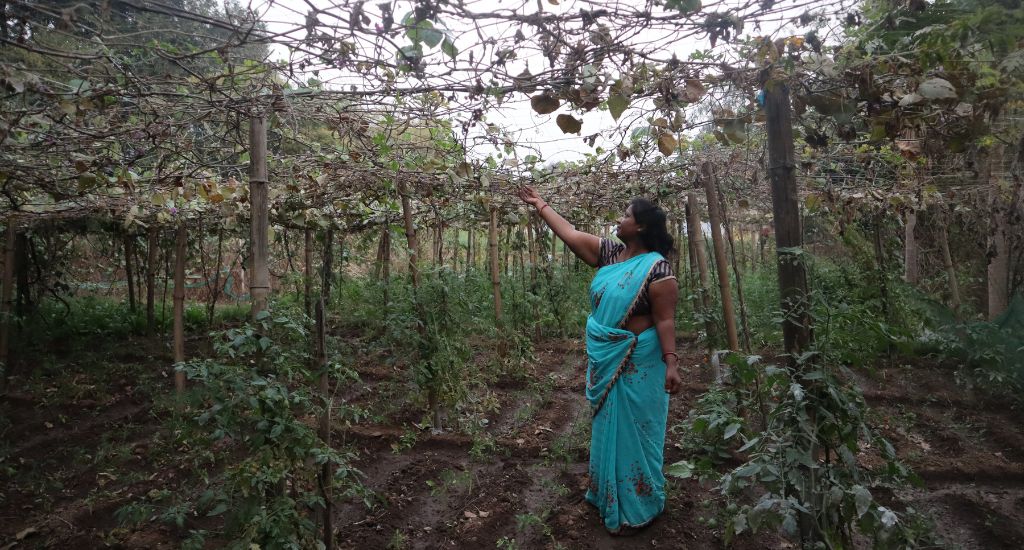
Women’s organic farms mitigate Jharkhand’s migrant issue
Women farmers in Koteng Sera village of Jharkhand have embraced organic farming practices, breaking the cycle of labour migration, and securing nutritious f and income for their families.

Women farmers in Koteng Sera village of Jharkhand have embraced organic farming practices, breaking the cycle of labour migration, and securing nutritious f and income for their families.
India was caught in a seismic shift in 2020 — a pandemic and an unprecedented lockdown that brought a sprawling landscape to a grinding halt. Everyone hunkered down and millions of migrant workers were stranded in big cities without jobs, food and shelter. Fearing starvation, whole families packed their pots, pans and blankets into rucksacks and, balancing children on their shoulders, started walking home along highways.
Among those who took the journey home were farmers from Jharkhand, who have been migrating to other states for seasonal work between the Kharif and Rabi harvests every year. According to government data, more than 500,000 people from Jharkhand migrate as labourers annually, but this figure is believed to be much higher.
The pandemic taught them the perils of migration. Jyoti Khandit, a resident of Koteng Sera village in Gumla district of Jharkhand, found a way out of the migration cycle through organic farming. When the lockdowns eased in 2020, Khandit connected with Pradan Sansthan, an NGO, which not only encouraged her to practise organic farming but also provided essential training.
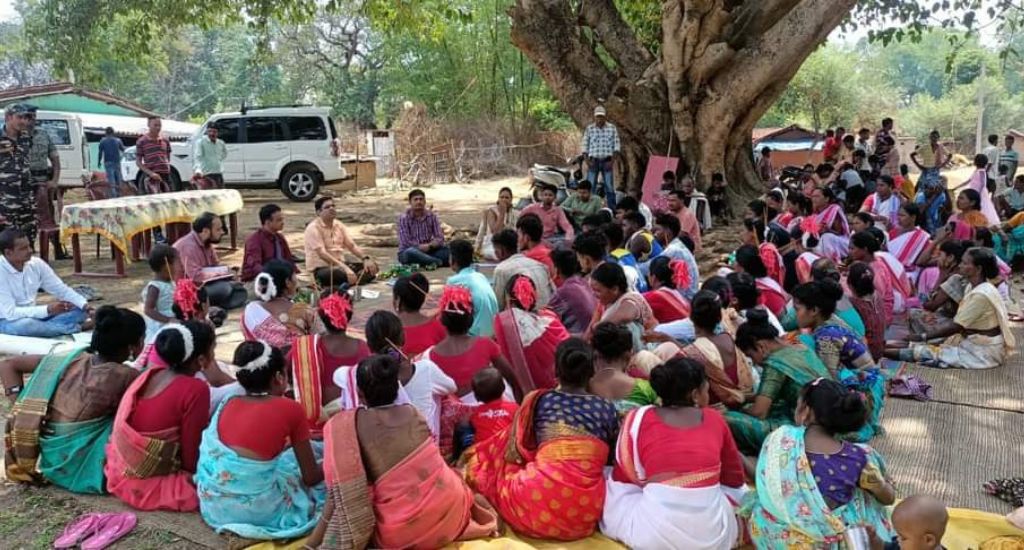
“Since I started practising organic farming, my income has increased. The vegetables taste better and customers keep coming back,” said Khandit, whose success has inspired more than 150 women in Koteng Sera to embrace organic farming.
Also Read | Tribal woman ushers in organic farming in India’s last village
A survey conducted by Pradan Sansthan four years ago revealed that the use of chemical fertilisers was depleting the soil’s fertility and harming beneficial organisms. This led to increased water requirements for irrigation. Farmers were forced to leave agriculture to become migrant labourers due to water scarcity.
In response, Pradan initiated its CLAP (Comprehensive Lively Adaptation Pathway) programme as part of which farmers were taught how to grow multiple crops on less land, significantly reducing water usage. They also learned techniques to make organic manure and insecticides from cow dung, neem and cow urine. These homemade solutions are cost-effective and environmentally friendly, and preserve essential soil organisms.
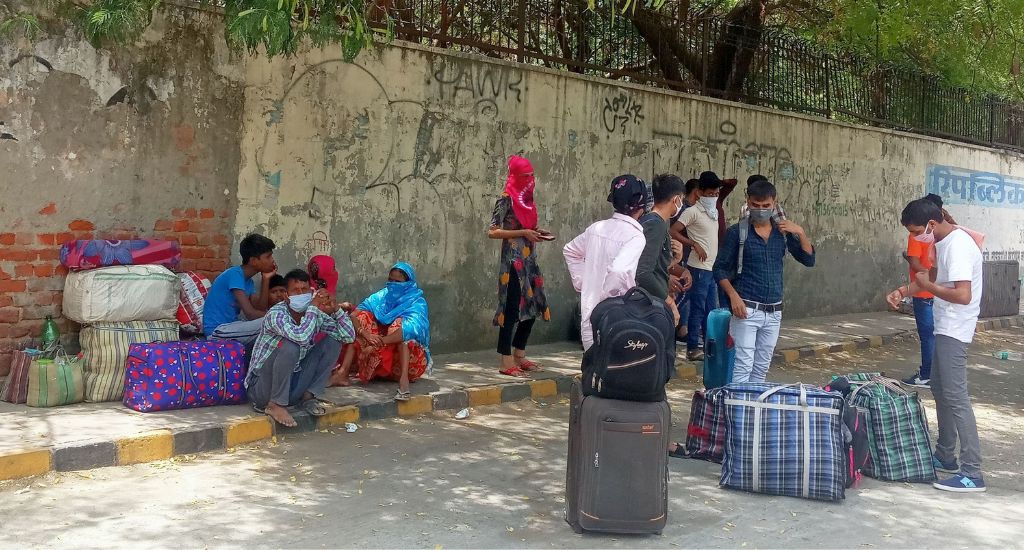
Farmers in Jharkhand face some unique challenges. Agriculture here is heavily weather-dependent, leading farmers to rely on chemical fertilisers and irrigation, Ajay, the leader of Pradan in Gumla district, said. Consequently, many farmers have been forced to become migrant labourers in other states.
However, the increased interest in organic farming and the associated benefits are rewarding for those involved in the movement, offering both economic viability and an opportunity to coexist harmoniously with nature. Organic farming proves particularly appealing to farmers with smaller plots of land, as the added value of organic crops enables them to generate significant income.
The main distinction between organic and conventional farming lies in the use of synthetic fertilisers, pesticides and genetically modified seeds. While conventional farms heavily rely on these practices, they are prohibited in organic farming.
Also Read | Why migrant labourers keep flocking to Kashmir
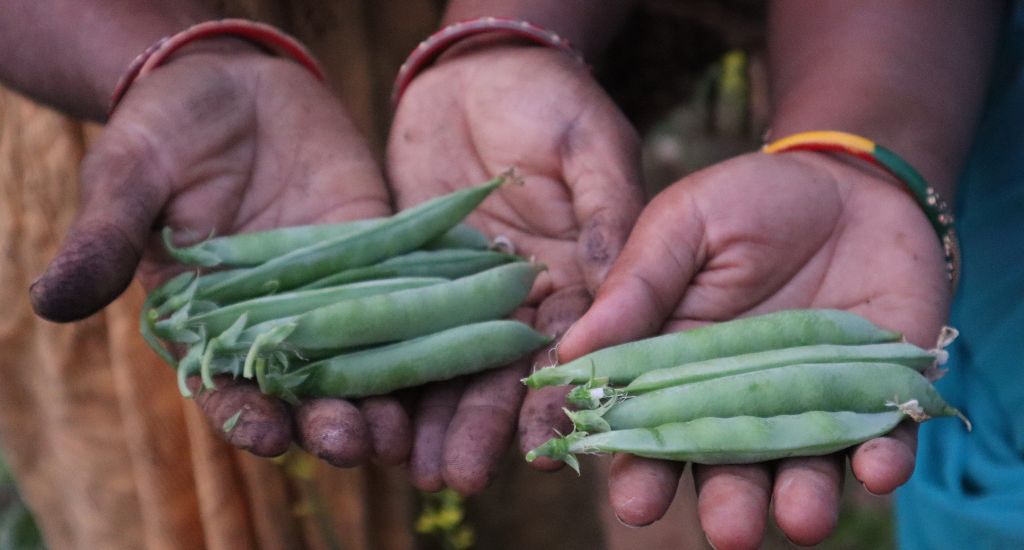
Organic farmers employ alternative methods to control weeds and pests, such as crop rotation and planting cover crops that naturally suppress weeds and enrich the soil with nutrients.
Recognising the predominance of women in the fields as men migrate to cities in search of work, Pradan focuses on training the former in organic farming to empower them financially. This approach has yielded positive results, with men staying in their villages and supporting women in organic farming.
More than 300 farmers have abandoned the practice of leaving home to work in the cities — mostly in factories and construction sites, where payments are low, but the work is hard.
The adoption of Koteng Sera village under the agri-smart village project by local legislator Sudarshan Bhagat in November 2022 has further enhanced government support for organic farming.
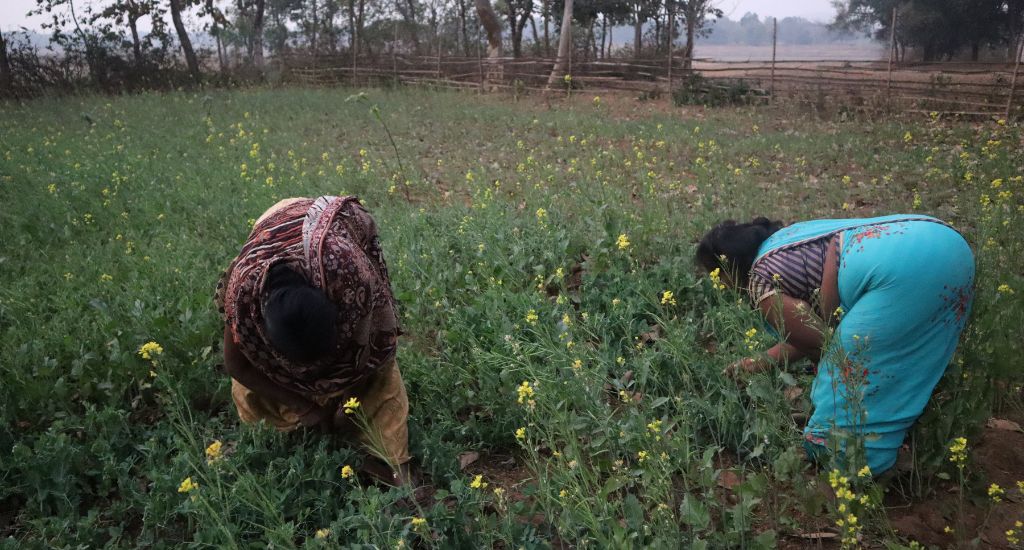
Impressed by the reduction in migration, Bhagat believes that Koteng Sera can serve as a model for other villages in Jharkhand to adopt low-cost organic farming practices and address the migrant worker issue.
The support from the government has brought immense benefits and happiness to the villagers. Today, the women in Koteng Sera have more income and improved livelihoods. The men in these families, who previously migrated for work, are now engaged in organic farming and no longer feel the need to leave their village.
They value the simple benefits of their choice, such as time spent watching the abundance of birds, bees and butterflies that flock to their herbicide-free farms.
Also Read | Women adopt organic farming to transform a Karnataka village
The lead image at the top shows Jyoti Khandit at her farm in Koteng Sera village, Jharkhand (Photo by Monika Marandi)
Monika Marandi is an independent journalist based in Delhi. She is a Rural Media Fellow 2022 at Youth Hub, Village Square.